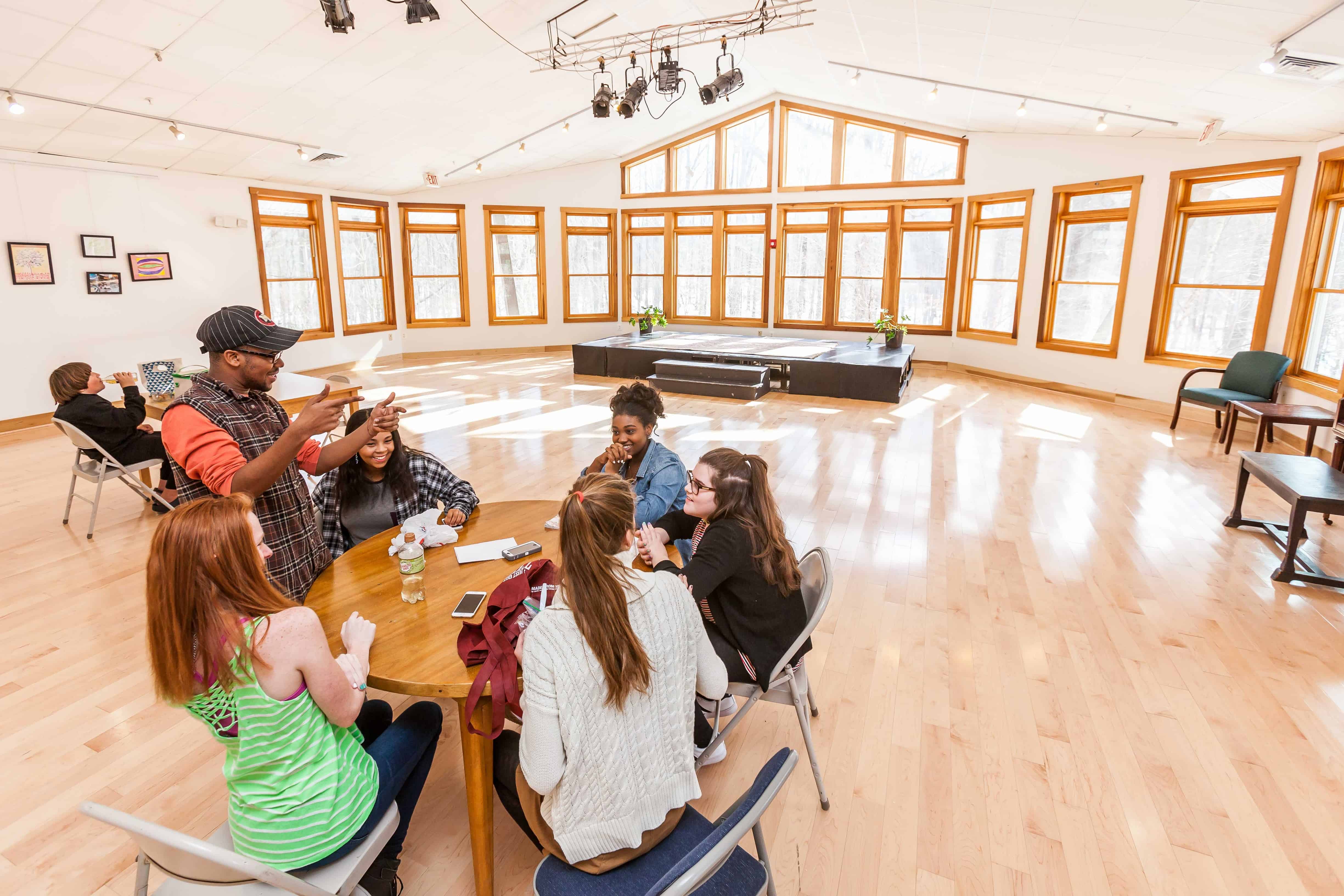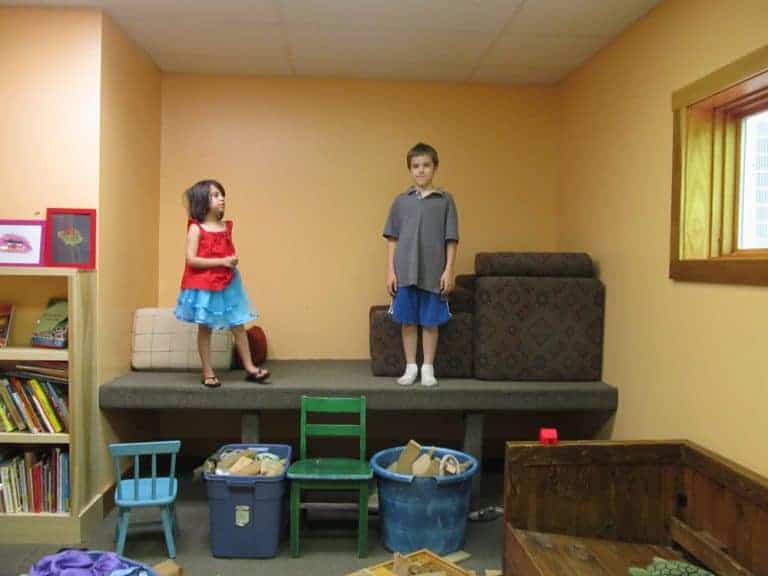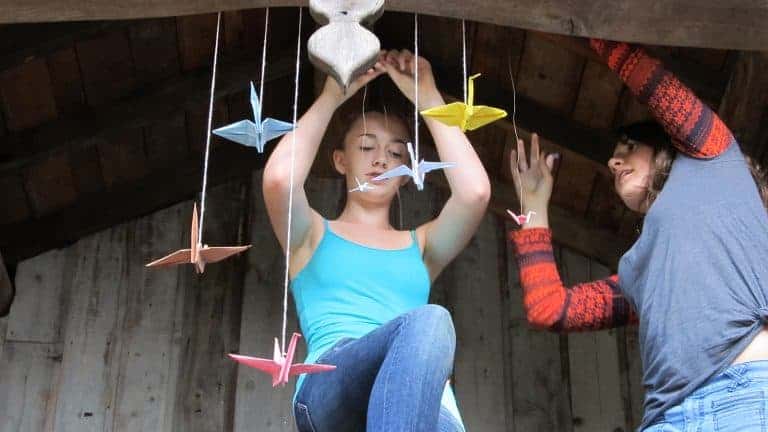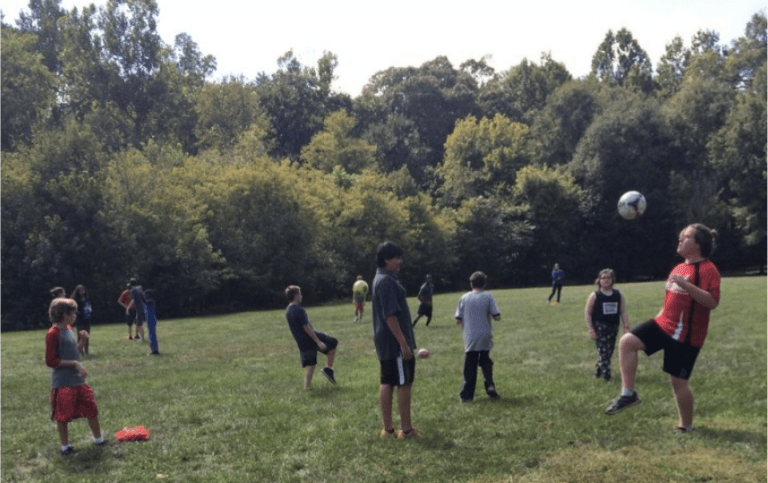Field Notes: Conversation
One in an occasional series of observations at Fairhaven School, made in the spirit of wildlife study.
“Some languages are so constructed – English among them – that we each only really speak one sentence in our lifetime. That sentence begins with your first words, toddling around the kitchen, and ends with your last words…”
–Mary Ruefle, from Madness, Rack, and Honey
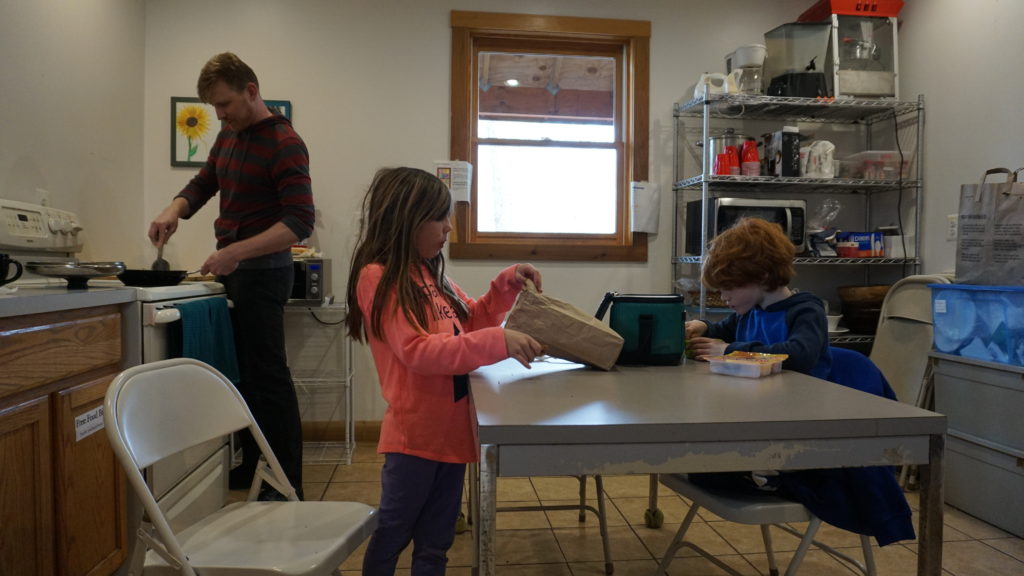
Perhaps nothing is more ordinary at Fairhaven School than a conversation in the kitchen while eating. They seem almost to be times when nothing is happening. I sat down recently with three younger girls (two nine-year-olds and a six-year-old). It was early, so the school was still relatively quiet.
Our conversation ran the gamut. Who prefers dogs, and who cats? How do you play “Apple-Touch Tag?” My parents are getting a real-life divorce. Sometimes, I have insomnia. Oatmeal before bed sometimes helps. How much we all love eating! Our favorite meals. I’m sad about moving to Indiana. What it’s like having to put down a cat who was 17. What will old age feel like?
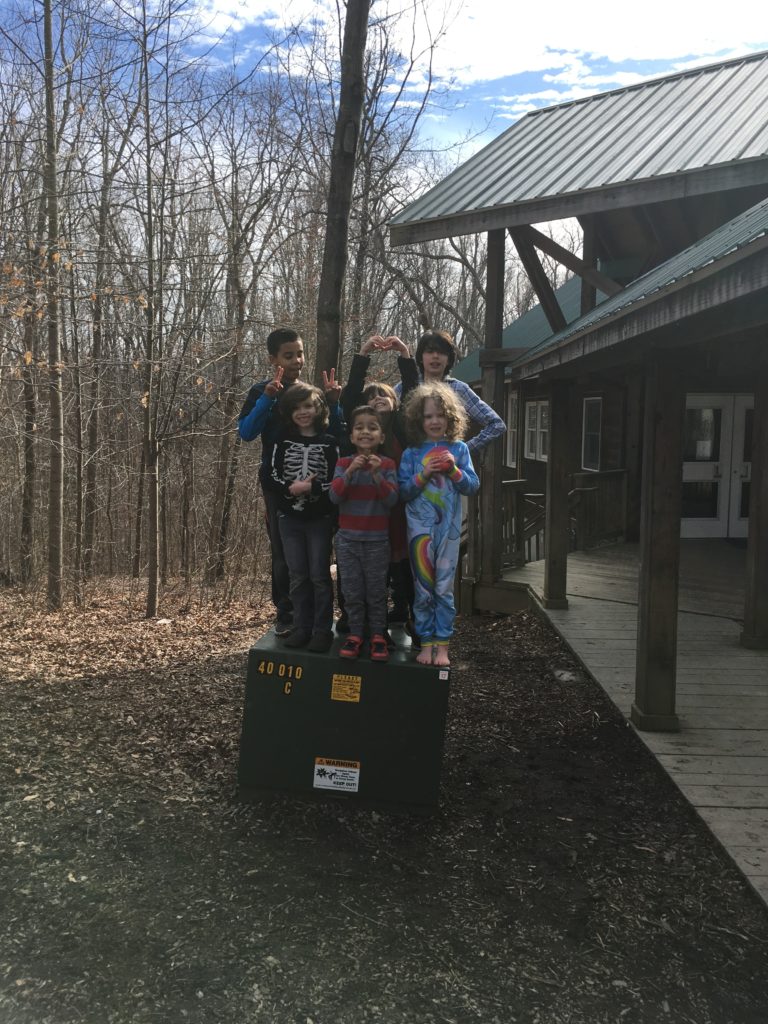
As so often happens here, the ordinary became the extraordinary, simply because we had the time and the mutual respect to practice the ancient art of conversation, of speaking and listening. Fairhaven is, among many other things, teeming with conversations, and this one was both typical and noteworthy, an especially lively portion of Ruefle’s lifelong sentence. Isn’t the spoken word perhaps the most important distinction of the human species? We recognize and honor this distinction here. Instead of sit down, be quiet, and do you work, our instruction is: do what excites you and talk!
In the example above, crucially, although an adult, I didn’t impose any topics, and I didn’t dictate the flow or the tone. The talk just flowed from one thing to the next. When one of them realized it was Friday, a day authorized by School Meeting to run in the vaulted Chesapeake Room, she said to her friends, “Let’s go play tag!”
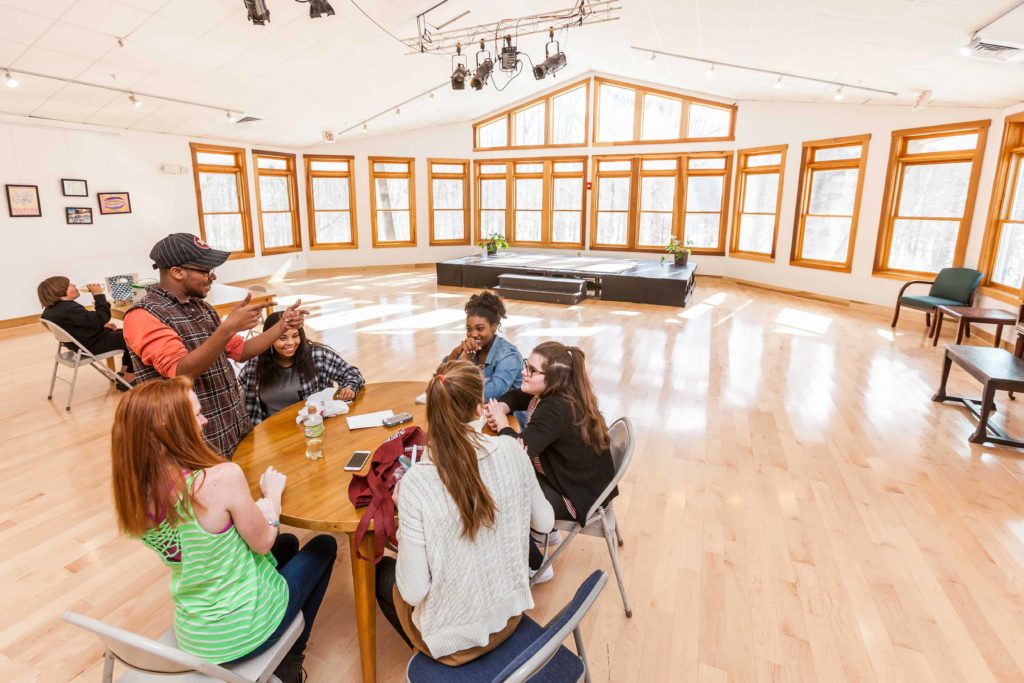
The younger girl frowned, reminding them that she is restricted from the Chesapeake Room because of a JC sentence for leaving too many messes. They all considered the problem. The needs of the one, the needs of the many. Eventually, the first one said, “I think I’m going to the Art Room.” The youngest smiled. After packing up their food, away they scampered, problem solved, with other experiences and conversations to be had in the ongoing, often spoken creation that constitutes a Fairhaven education.
Mark McCaig
March, 2019
